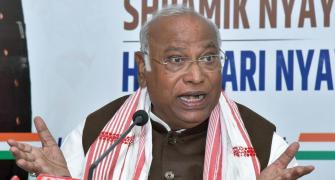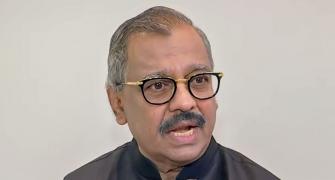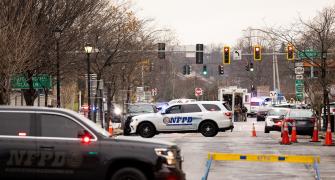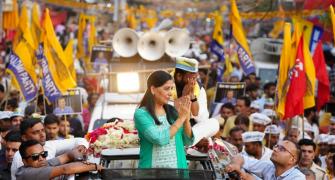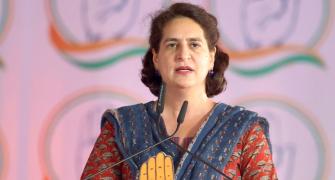So it is not surprising that the shockwaves generated by Bhutto's brutal assassination in Rawalpindi were felt quite acutely in the UK. David Miliband, Britain's Secretary of State for Foreign and Commonwealth Affairs, condemned Bhutto's assassination.
Second Generation Apathy
While speaking to people of Pakistani origin in London, this writer was conscious of a palpable sense of shock that seemed to pervade the community.
The strongest opinions seemed to come from first generation immigrants. Most British-born Pakistanis expressed apathy, like Asif, the owner of a local shop: "I don't give a damn about what happens in that country. I'm British" and Salman, who believes: "Democracy may work in India; but has never worked and will never work in Pakistan".
Bhutto Controversial in life and in death
While most people find the assassination reprehensible, they appear to have extremely divergent opinions about Bhutto the politician.
Mohammad Shahid Farooq, who runs the local post office and has lived in the UK for the last twenty years, believes Bhutto had always taken a polished, democratic approach, and wanted to work towards the development of Pakistan even if she was the quintessential politician. He is particularly impressed by her comeback.
"After having spent some time in western democracies, I believe she had improved and honestly wanted to work for Pakistan," he said.
Farooq was particularly reassured by rumours that Bhutto had distanced herself from her infamous spouse, Asif Ali Zardari, "Zardari, or Mr Ten-Percent as he was known, was definitely the more corrupt," he stated.
Salman, a businessman of Pakistani origin, also believes that Bhutto herself was not corrupt, but the clique around her was. "She was a good leader it was the people around her that took advantage of her".
Bilal Akram is a high-technology entrepreneur who moved to the UK a few years ago. He is not as sympathetic towards the former PM, calling her corrupt and attributing her return to Pakistan to string-pulling by Western governments. He says, "It would have been bad for Pakistan had she returned to power."
Assassination the Aftermath
All of the British Pakistanis this writer spoke to agreed on the serious setback the assassination will cause to Pakistan's transition to democracy, and expressed their worry for friends and family in Pakistan.
"A friend of mine is in Rawalpindi right now. I expect lots of violence, and am worried for him," says Farooq.
As for ominous warnings of civil war emanating from Pakistan, none of them take it too seriously. "Though the military may not control the country as they did before, I think they'll be able to hold Pakistan together," says Farooq.
Bilal says, "Benazir Bhutto was not Indira Gandhi. She was nowhere on the Pakistani political map just six months ago. However, her death will have a tremendous impact on the Pakistan People's Party Bhutto is the PPP".
They think that the increasing radicalisation in north-western Pakistan is the reason behind Bhutto's killing, and disagree with the conspiracy theories that abound. Says Farooq: "Just the other day in Peshawar, she had spoken very strongly against these radicals. She has paid for it with her life today".
Both Farooq and Bilal were quite angered by the Pakistan's government's inability to protect her in spite of the clear threat to her life. "The radicals in the tribal areas may have killed her; but it was a failure of the government machinery," they feel.
The role of the UK
Opinion was far from unanimous on this count. Salman believes that the UK has had nothing to do with Pakistan in the past, and should have nothing to do with it in the future.
However, Bilal disagrees. "The UK brought Benazir back to Pakistan. Now she's dead. They along with the rest of the international community should apply pressure on Musharraf to hold free and fair elections. He should not be allowed to use this as an excuse to tamper with the elections," he says.
Farooq, on the other hand, feels that the UK has had a finger in the Pakistani pie throughout. "The War on Terror has created the radicals that killed Bhutto. Bhutto is unlucky she died because of the Pakistani military's actions in the tribal areas, because of the perception that Musharraf is the West's man. It is important that the UK disengage itself militarily from the area, and still use their influence to force Musharraf to hold elections". He also expresses the hope that Nawaz Sharif, unpalatable to the West, can save Pakistan, "He is his own man. He knows how to deal with the tribals; yet, he is no radical himself," says Farooq.
British Pakistanis or Brits of Pakistani origin?
From talking to the British Pakistani on the street, one gets the impression that most are fed up with Musharraf's government and are generally unhappy with the radicalisation in the tribal areas. However, they do not see Bhutto's assassination as a body blow to the country itself, and are not particularly optimistic about either democracy or fruitful British intervention.
Not surprisingly, nobody sets much store by Miliband's immediate 'reassurance' to the Pakistani community in Britain.
What appears to be most interesting is the sociological premise that British-born Pakistanis are less British and more Pakistani as immortalised by the Tebbit Test (devised by the British Conservative politician, Baron Tebbit) may be quite far from the truth. The general apathy and disinterest in Pakistan and Pakistani politics expressed by young Britons of Pakistani origin seems to indicate that they don't consider themselves all that much Pakistani after all.

